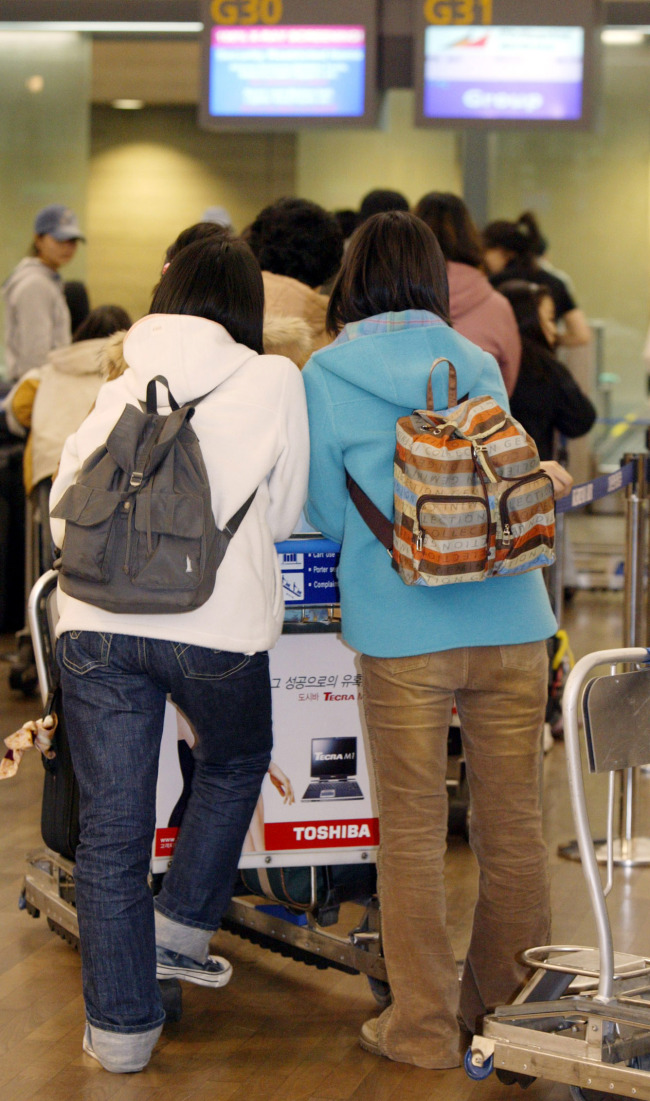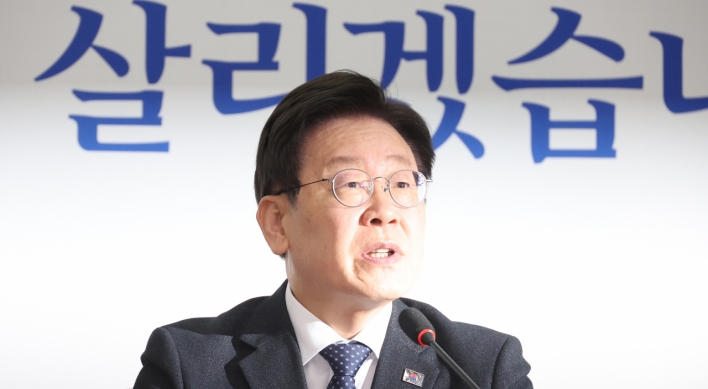[Eye on English] For Korean moms, family separation is sometimes ‘necessary’ sacrifice
Korean mothers must choose right time to send kids abroad to maximize English learning
By Lee Woo-youngPublished : Jan. 22, 2014 - 20:04

A 39-year-old housewife surnamed Shin recently decided to apply for a visa to Canada for herself and her children. She plans to stay for up to two years so her kids can go to local schools. She will also have to take on the “father role” as her husband will be staying in Korea to financially support them.
“I am taking my kids to Canada for my children to get an English education. I plan to stay in Canada just long enough for my children to master English,” she told The Korea Herald by phone.
Studying abroad is a popular option for Korean middle-class families to help their children become fluent in English. Approximately 20,000 elementary and middle school students studied abroad last year, according to the Korean Educational Development Institute. Of them, more than half visited the U.S., Southeast Asian countries and Canada ― popular destinations for Koreans to send their children to study English.
Overseas trips often leave Korean families separated. Mothers accompany their children while fathers remain in Korea to make money to support them. These families have become a social phenomenon and even earned the nickname “geese families.”
“If everything allows, I think it will be a great opportunity for my kids to live in Canada for a couple of years to learn English. That will be a great benefit to them for the rest of their lives,” said Shin.
The influence English has on the life of average Koreans is huge. Being fluent in English is considered a great advantage in important stages of one’s life from college acceptance to employment and job performance, and Shin understands it as well as anyone.
“I personally experienced obstacles in my job because of English. I was in charge of setting new business plans, which involved a lot of work with foreigners. Generally, speaking and understanding what they were saying weren’t hard, but when I had to work with detailed matters, I had difficulties,” she said. “Studying abroad is necessary if one wants to be comfortable with the language,” she added.
Leaving their husbands in Korea isn’t an easy decision for the mothers. It often leaves the entire family with emotional stress and financial difficulties.
The mother of a 15-year-old middle school student decided to return to Korea with her child after spending two years in Canada.
“I don’t think a family should live separately and a child needs a father,” the mother surnamed Kim said in an email to The Korea Herald.
She said the “emptiness” without her husband was greater than she thought. Financial difficulties eventually led her to wrap up their life in Canada.
Mothers said private school tuition plus living costs reach almost 100 million won ($94,000) a year, in addition to expenses for extracurricular activities and school trips that range from 1 million won to 3 million won.
Kim, who returned from Canada in 2012, said most mothers eventually come back to Korea unless they are planning to send their kids to college abroad, too. “About 7 out of 10 come back to Korea eventually,” she said.
As supporting children up to college can put a huge burden on a family, mothers make sure to pick the right age to send their children abroad to fully take advantage of the limited time in English-speaking countries and adjust easily to Korean schools later.
“The time spent abroad could help them to become fluent in English, but when they return to Korea, adjusting to the Korean school system becomes a greater problem,” said another mother surnamed Kim, who sent her kids to a school in the U.S. while her husband worked as a visiting scholar for three years.
She said her eldest daughter had trouble catching up with the Korean high school curriculum because she had skipped the local middle school curriculum. Moreover, her daughter’s English proficiency didn’t help her do well in the Korean-style English exam, which focuses on memorizing.
“It depends on the child and their age. Usually the earlier, the better,” she said.
By Lee Woo-young (wylee@heraldcorp.com)




![[Herald Interview] 'Amid aging population, Korea to invite more young professionals from overseas'](http://res.heraldm.com/phpwas/restmb_idxmake.php?idx=644&simg=/content/image/2024/04/24/20240424050844_0.jpg&u=20240424200058)







![[Hello India] Hyundai Motor vows to boost 'clean mobility' in India](http://res.heraldm.com/phpwas/restmb_idxmake.php?idx=644&simg=/content/image/2024/04/25/20240425050672_0.jpg&u=)





![[Today’s K-pop] NewJeans' single teasers release amid intrigue](http://res.heraldm.com/phpwas/restmb_idxmake.php?idx=642&simg=/content/image/2024/04/26/20240426050575_0.jpg&u=)